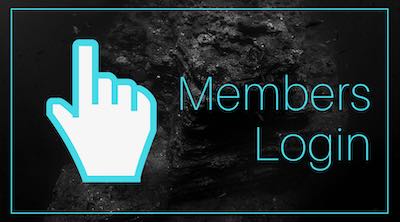Family offices in Asia and the Middle East have a very underpenetrated marketplace. Family offices offer ample of opportunities to asset managers.
Family offices merge the trait of both institutional and individual investors, says Moshe Strugano, Attorney Moshe Strugano & Co. Law firm. The family office manages the wealth of an individual or a single-family. While the asset’s size can be as large as that of an institutional investor, the family members may not have the similar level of financial knowledge, which an institutional investor would have.
Family offices generally do not certainly contend with asset managers. Instead, they complement asset managers, who can offer services to family offices like asset allocation, investing, risk management, monitoring, manager selection, etc. says Moshe Strugano, Attorney Moshe Strugano & Co. Law firm.
There are two categories of family offices such as multifamily offices, serving two or more families, and single-family offices, serving one family. The get-by point between having a Single-family office or joining a multifamily office is approx $150 million to $200 million of liquid assets, which are not occupied in a business or somewhere else.
Already, Asia is surely major wealth and clearly, the fastest growing place of major wealth says Moshe Strugano, Attorney Moshe Strugano & Co. Law firm, a private law forum for wealth owners to manage all legal concerns inside one roof.
As wealthy individuals and families outside Europe and the Americas perhaps not known concept of family offices, why creating a single-family office is important, how to form the infrastructure? How to get the talent? How to put it all together and make it operational? It’s not simple, it’s not economical, and there are some resources in Asia for support.
Family offices in Asia and the Middle East offer massive opportunities as there are lots of wealthy people in the region, and most do not have adequately steady and have professional counsel to manage a family office. In many situations, the person investing the wealth of the family is simply considered as their accountant. That is not essentially the right individual for the job.
Therefore, the need for asset managers is essential.
Primary, asset managers have to “be extremely superior at what they do. They have to be expert in their approach,” says Moshe Strugano, Attorney Moshe Strugano & Co. Law firm. “Most significantly, they should have an inclusive understanding of the requirement of the principals. Is it a single-family member or numerous generations? What is their information or need thereof? What is their risk-taking capacity? Is there a possibility to take a risk at all, if they are a big family with lots of members?”
The first age group―generally the entrepreneur who made the fortune― usually is contented with taking a risk, but with the prospect for excessive returns,. “They must be educated and go through an education arch that family offices are a completely different business form to the business form that they come from.”
The second age group generally has a broader perceptive of family offices. However, this age group generally involves more people, who have various capabilities to take the risk. Asset managers have to work with these customers to find a way, which everyone can live with, for instance, putting half the assets into extremely safe investments and a half into policies with an advanced upside.
With succeeding age group, the number of family members advances and scatters, and the tendency for risk goes way down.
The occurrence has revealed that “in most families of big wealth, most of that affluence will disperse after the third generation,” says Moshe Strugano, Attorney Moshe Strugano & Co. Law firm, conflict and bad wedding decisions take a charge. “After the 1st generation, personal aspects maybe are more crucial to the family office than having a few hundred basis points more on speculation.
Multifamily offices group the assets of various families to get entrée to managers and details that would have been out of reach of individuals due to scope. They even have to balance various risk appetites of families whose age group breakdowns may not line up tidily.
Family offices are particularly responsive to geographic diversification and the danger―as borne out in many countries around the globe in the past―of having their wealth takes away in times of adversity or turmoil.
Family offices even differ by which actions they carry out in-house and which they farm out. “Some family offices contract out all investment management tactics and maintain in-house only managerial functions to collect data from asset managers and to report back to family members”.
Risk management is one part, which lots of family offices are carrying back in-house, after disappointing outcomes during the global financial crisis. Particularly, “family offices have to park a considerable amount of assets with funds of funds, whose only work in life in return for a soaring fee is to do manager selection and checking. They found past the crisis, which these funds of funds underperformed.
Family offices having less than $1 billion in assets under management signifies about 57% of Single-family offices in various surveys. At that point, family offices are inclined to outsource a range of investment aspects, like asset allocation.
Family offices usually do more than managing wealth, and asset managers consider what more services their institutions can offer are. Family offices perhaps manage the family property, domestic staff, aircraft, or boats tied up in harbors around the globe. They may manage insurance, philanthropy, caretaker services, expert services and hold up security or real estate planning. They even “play an important role in maintaining harmony in the family by arranging family activities and involving younger family associates in activities,” says Moshe Strugano – Attorney Moshe Strugano & Co. law firm.
Before even recruiting the staff, however, rich families need good suggestions on how to make and structure the family office based on their needs and situations. They have to consider where to abide by the family office, the best type of legal entity, whether to establish trust and whether the trust then establish a personal trust corporation, or whether to make a captive insurance corporation, etc., says Moshe Strugano – Attorney Moshe Strugano & Co. Law firm
The family office must include a committee, officers, board, and directors, which can handle all circumstances and execute the wishes of the family.

















